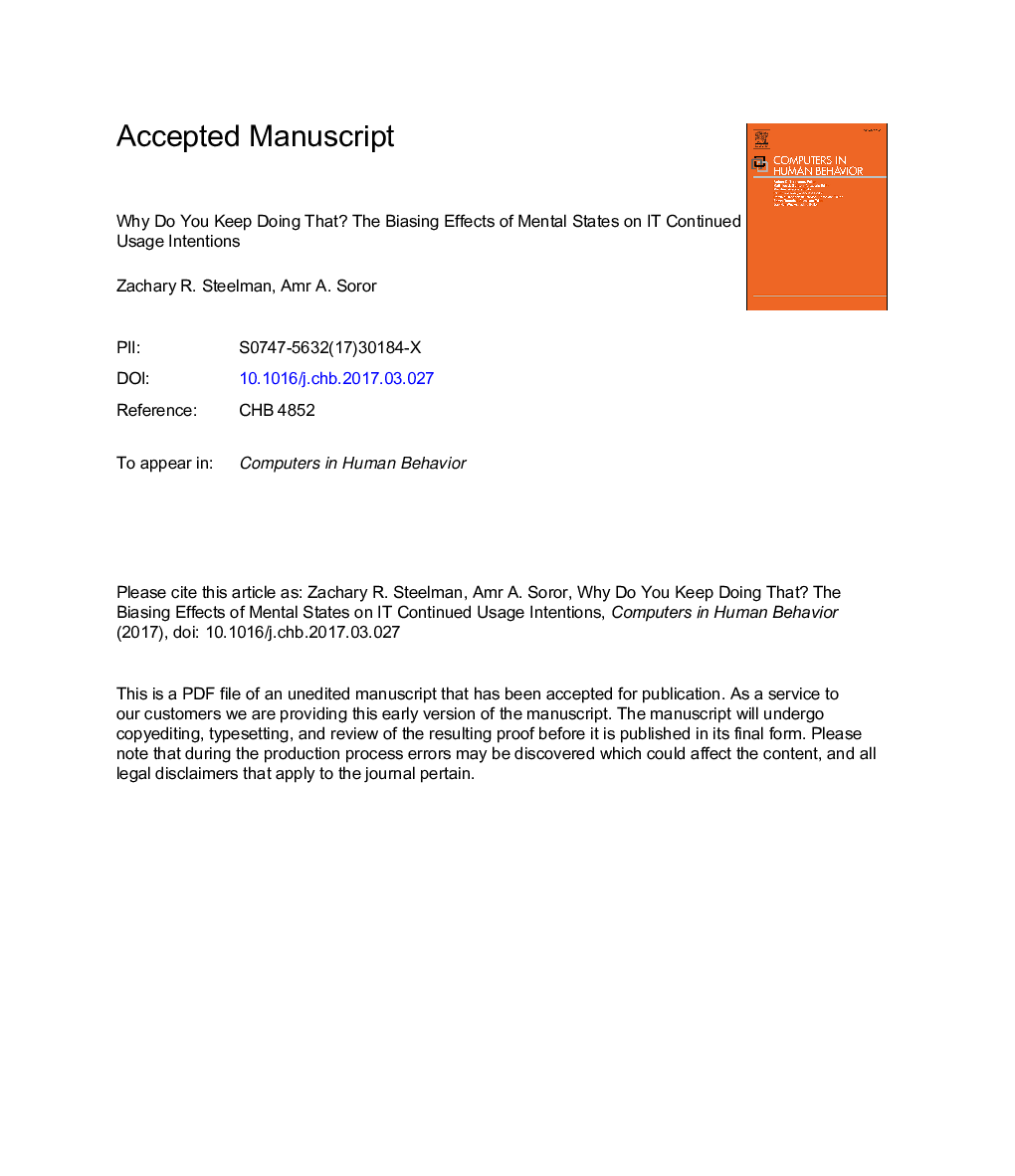| Article ID | Journal | Published Year | Pages | File Type |
|---|---|---|---|---|
| 4937173 | Computers in Human Behavior | 2017 | 32 Pages |
Abstract
Information Technology (IT) continued use decisions are typically assumed to be based on the results of a rational evaluation of the users' IT use experience, yet, recent findings suggest that continued use decisions might not be purely rational. In the current work, we build on the expectation-confirmation theory as well as cognitive dissonance theory to investigate possible mechanisms driving the continued use decisions of mobile phones. As an attempt to extend the existing paradigm in the IT continuance literature beyond rational decision making, we theorize three possible alternative mechanisms that might drive IT continued use decisions, namely psychological states (i.e., a cognitive and affective states of mind), reasoned action, and affective response. According to cognitive dissonance theory, human beings tend to reduce experienced cognitive dissonance by assimilating their post-behavior perceptions toward their prior expectations. As a result, in the context of IT continued use, we argue that experiencing psychological states such as technology addiction and excessive technostress might bias users' evaluations of their IT use experience, which in turn influence their post-use perceptions on the cognitive and affective levels, and consequently will influence the users' continued use decisions. A partial least squares analysis of 436 responses was used to validate and test our model. The study results generally support our model. The theoretical and practical implications of our study are discussed.
Related Topics
Physical Sciences and Engineering
Computer Science
Computer Science Applications
Authors
Zachary R. Steelman, Amr A. Soror,
